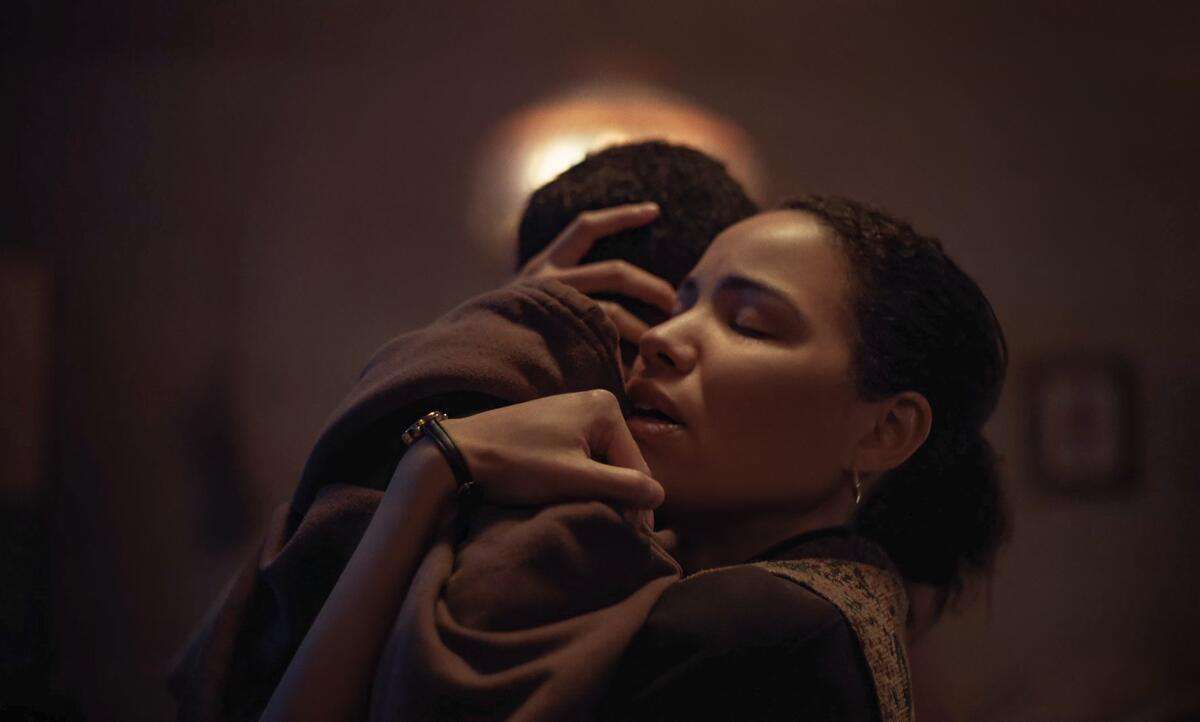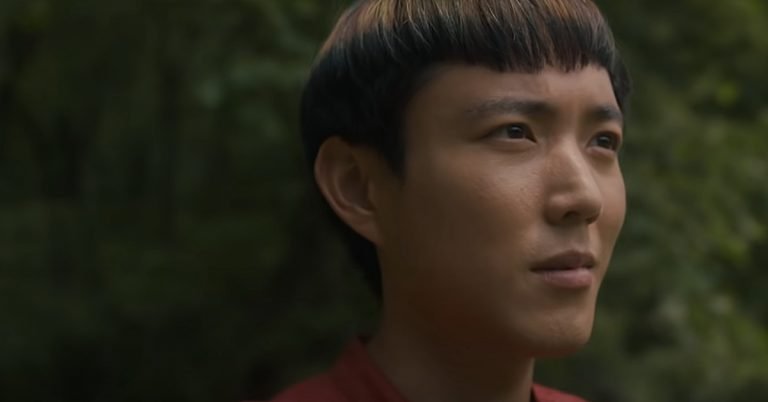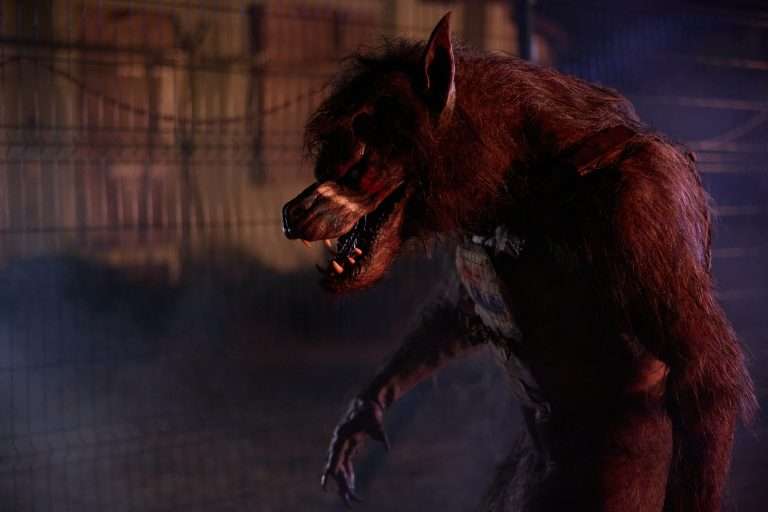Barry Jenkins’ Oscar win for “Moonlight” paved the way for many new voices to be in the spotlight. Besides being a low-budget independent film, its nuanced & poetic depiction of black characters helped similar stories gain considerable momentum. Minhal Baig’s “We Grown Now” is a similar example of an American indie film that tries to celebrate joy and resilience amid pain and sorrow. It is a lyrical exploration of the dreams and aspirations of two best friends who grew up in the Cabrini-Green housing complex in the early 1990s. Through this coming-of-age tale, the film explores their growth amid systemic racism in American society.
Spoilers Ahead
We Grown Now (2024) Plot Summary & Movie Synopsis:
Written & directed by Minhal Baig, “We Grown Now” is a coming-of-age film about two black kids who grew up in the Cabrini-Green housing complex in the early 1990s. Besides Blake Cameron James & Gian Knight Ramirez in the central roles, the film also stars Jurnee Smollett, Lil Rel Howery, S. Epatha Merkerson, Avery Holliday, Ora Jones, and Giovani Chambers.
What happens in ‘We Grown Now’?
Set in the early 1990s Chicago, “We Grown Now” follows a narrative that unfolds largely in the Cabrini-Green homes that provided shelters to many Black Americans since the early 1960s. At its peak, it was one of the largest housing communities in the United States. In these homes, we meet Malik (Blake Cameron James) and Eric (Gian Knight Ramirez), two tween best friends. The film begins with them carrying a boxed mattress to the playground. They add it to a pile of mattresses to jump over. By jumping, they try to experience the thrill of flying.
Malik & Eric’s Homes
Eric lives with his older sister, Amber (Avery Holliday), and his father, Jason (Lil Rel Howery), whereas Malik lives with his mother, Dolores (Jurneee Smollett), his grandmother, Anita (S. Epatha Merkerson), and his young sister. Malik is used to cracking jokes, which his grandma appreciates, but his mother doesn’t. Still, she takes care of him with love & affection. As a single mother, Dolores tries to take care of the kids’ nutrition to the best of her ability. But as kids, they crave things as any other kid, which she occasionally fulfills.
Jason remains lost in his financial worries and expects Eric to be bright, likely due to his worries stemming from his personal experiences. Even though he appears emotionally distant to young Eric, he understands the value of education. On the other hand, Malik learns about his grandmother’s lived experiences. Although she was raised and lived much of her life in Tupelo, Mississippi, she doesn’t miss her place. She reflects on her past, and has accepted Chicago as her home. After being forced to leave their homes, that is likely her emotional decision to not dwell much on it. Still, its emotional burden weighs on her mind.
The School Life
The film follows Malik & Eric’s school life as they walk to school with their friend, Slug (Giovani Chambers). They express themselves through drawings and imagine a floating universe in their apartments. While holding on to the fence, they scream, ‘We Exist,’ a proclamation of their existence. They share their lunch and know what the other likes and dislikes. During one of their days at school, they hear a gunshot. A 6-year-old kid gets shot when walking with his mother. This incident creates ripples as the residents of their housing complex get denied entry into their own homes without ID cards.
After getting their ID cards made, Dolores brings the kids home. Anita offers Eric to stay for the night. Instead, Malik wants to go to Eric’s place. He complains about the leaking faucet in their home. But Dolores is helpless in this matter since her requests for repair have not been answered for months. A while later, on Martin Luther King Jr. Day, Malik & Eric get bored watching a nature documentary in their class. So, they decide to ditch it and run away to the art museum. On their way through a train, Malik gets smitten seeing a young woman. He tells her that he loves her. In the museum, the artworks make their inquisitive minds raise questions about injustice and inequality.
The Life at Home

Since Malik & Eric left school without telling anyone, their parents got worried. Dolores starts calling everywhere to soon find Malik’s return home. She gets upset at him for leaving without telling anyone, especially in the wake of the recent death of an innocent kid. On the other hand, Jason also gets upset at Eric and grounds him. Later on, Malik & Eric reunite at the kid’s funeral and discuss what they think about death and the afterlife. While the news talk about increasing violence, cops suddenly break into Dolores’ house to check if there are any drugs. Even in that chaotic environment, the kids reclaim their existence.
While taking care of her kids, Dolores remains overworked but underpaid at her job. Anita motivates her to ask what she rightfully deserves. But Dolores fears getting fired if she asks for it, considering the dog-eat-dog state of employment. Eventually, she dares to speak, only to realize the promotional job isn’t in Boston. So, for her commute, she will need to buy a car. Regardless, her manager thinks she deserves this promotion and believes she shouldn’t reject it. Back home, Anita senses Dolores’ fear of growing beyond their known reality. She pushes her to take the next step in her life.
We Grown Now (2024) Movie Ending Explained:
How do Malik & Eric experience growth?
After learning about Dolores’ job offer, Anita tells Malik about her past. Back then, Malik’s grandfather, Gordon’s shoe store, got burned out, which made them leave their home for years. At the time, they ran from an unsafe neighbourhood to find their new home to eventually wishing to run away. She seems worn out by this cyclic nature of escape, even if she seems to have made peace with the changes. Around this time, she & Dolores decide to move to a different house. Malik tries to process this change. When he & Eric meet, they talk about their dreams and what they want their future to look like. While Malik has vivid dreams, Eric fears to dream big.
Eric cheats in the class and gets upset upon learning about Malik’s family’s decision to move away. He acts impulsively like a kid would and gets angry at Malik. Since they grew up together, Malik’s impending departure starts weighing heavy on Eric’s heart. So, for a while, Eric stops talking with Malik. But Jason makes him realise that he is grown up to understand the complexities of friendship. He doesn’t need to hold a grudge and regret it later.
Therefore, Eric decides to act like a grown person. Meanwhile, before leaving, Malik looks back at his apartment and reminisces all that he has experienced there through the years. Outside, Eric meets him, and they embrace each other. Malik tells him not to be afraid to fly, i.e., to not be afraid to dream big. As Malik departs from the housing complex, Eric runs toward him. They both start crying, thinking about their loss..
We Grown Now (2024) Movie Review:
In Minhal Baig’s “We Grown Now,” the characters often say exactly what is going on in their minds. They scream ‘We Exist’ while standing behind the fences and speak openly about heavy concepts like death & afterlife. Usually, this approach would have irked me. But in the case of “We Grown Now,” its direct communication works since most of its scenes feel representational. They highlight the constant uncertainty in the lives of its characters, and the volatility had more to do with external factors (bigotry & racial prejudices) than internal ones.
Despite these harsh realities, the script etches out the internal conflicts of its tween characters, and the direction turns it into an emotional sucker punch. Its use of music and camerawork feels eerily similar to Barry Jenkins’ “If Beale Street Could Talk,” which also achieves warmth and emotional tenacity through its impressionistic visuals & a poignant instrumental score with an emphasis on violin. So, it becomes bittersweet, sensitive, and poetic. Despite its seemingly simplistic structure, “We Grown Now” is filled with deeply resonating moments that work largely because of its affecting performances.




![The Desperate Hour [2021] Review: Stuck Between Being a Parent’s Nightmare and a Nature Lover’s Dream](https://79468c92.delivery.rocketcdn.me/wp-content/uploads/2022/02/The-Desperate-Hour-768x436.jpg)



![Sunspot [2022] Review – An Inconsequential Ode to the New American Cinema of the 70s](https://79468c92.delivery.rocketcdn.me/wp-content/uploads/2022/08/Sunspot-2022-Movie-Review-1-768x405.jpg)